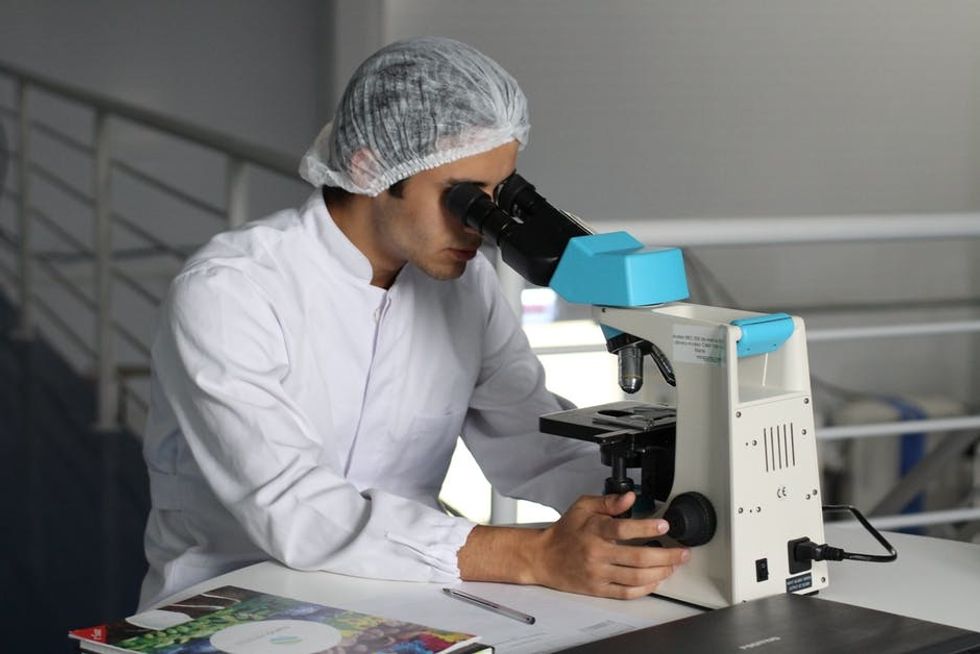Is medicine a science or an art? Although the answer may seem obvious to spectators, the topic is heavy debate among doctors themselves. "What is analysed is whether medicine is an "art based on science"; or, the "art of medicine'," writes S.C. Panda. My personal prejudices, as a pre-medical student who is also an English major, is that medicine is more an art than science, but I certainly want to consult experts in the discussion and topic before making my own overarching assumptions. I believe that medicine can't just be applied science because of the pure uncertainty in medicine.
But I can't help but being interested in medical humanities, in the capacity for everything to be connected. Sure, a national standard should probably be applied for treatment of heart disease, but flexibility in the individual treatment among our most trusted doctors is essential. I believe that medicine is more of an art than a science, but the truth, despite my dispositions, is that it is more a combination of both: doctors are as much relying on empirical evidence and standards as they are expressing themselves in their treatment.
I can see the counterargument, that doctors should not take their intrinsic need for independence and expression at the expense of their patients fighting for their lives. But saving someone's life is an art, as much as it is a science. No one can deny the emotional impact of seeing a patient die and suffer. A doctor's bedside manner in comforting their afflicted patients is as important as a doctor's actual treatment: the placebo effect is not just a trick, but a professional's individual relationship with a patient.
Again, a standard must exist for medical treatment of serious diseases like cardiovascular dysfunction, that is proven to improve patients' rates of success. At the core, survival is the priority for all doctors. But what comes after? What about the rehabilitation when survival isn't in the conversation, when the moving on with life is the most important thing?
The truth is that rigorous science and human empathy are both essential to optimize healing. Nature has given us two hands, and only giving one is a slight to patients. Medicine is a "healing art," accounting for both the empirical science and religious empathy that account for the bedside manner of interacting with patients.
Medicine is holistic for a reason, and there is, of course, a reason that so many doctors are also poets and writers. William Carlos Williams, widely considered the most prominent of modernist poets in our country. was a physician-writer and the "godfather of avant garde poetry." Williams practiced medicine until he died at 88, but in his unconventional relationship t poetry, in poems like "The Red Wheelbarrow," Williams rejected previously established conventions of rhyme.
"so much depends
upon
a red wheel
barrow."
In unconventional fashion, the minimalist poem by William Carlos Williams presents a revolution against the established rhyme schemes and traditional structures of poetry of his time. And that is perhaps what's at the core of what we want to say when we talk about medicine being a medicine or an art: that it's not a zero-sum game, but a back-and-forth interaction where both can flourish collaboratively and together.
I distinctly recall the days when my father, training as a doctor, religiously sang Michael Jackson songs while studying for his exams. Today, I believe he couldn't have passed if he didn't have passed those exams, as an immigrant struggling with English as his second language, had art not contributed to his learning.
I believe that there's a limit to what biochemistry and knowledge can explain for the human condition: there's a lot that we just don't know. Professor at Harvard University, Ted Kaptchuk, once expressed deep unease about the fact that biochemistry can account for the placebo effect.
"Once you start measuring the placebo effect in a quantitative way," Kaptchuk says, "you're transforming it to be something other than what it is. You suck out what was previously there and turn it into science."
Although science has cured and helped advance so many things, we must also recognize its limitations: there are things science just can't explain right now. There are phenomena from spirituality to religion to even the placebo effect that exclude science. When Jacob wrestled with an angel in the Book of Genesis, trying to be God left him with a hip injury for the rest of his life.
"He may be convinced that the relationship kindled by the encounter between a suffering person and a healer is a central, and almost entirely overlooked, component of medical treatment," writes Gary Greensberg of the NYTimes.
The best approach right now, like it is with many things, is somewhere in the middle. Doctors can't deny science, but they also can't deny the art in their expression. Medicine is both, and it will always be.















